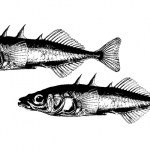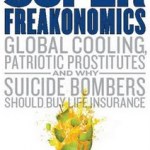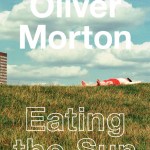
A new study suggests collective guilt can inspire action, but only if people feel reasonably hopeful that things can get better. The study, based on questionnaires to ~150 undergraduate students, also found that guilt was a more effective emotion in encouraging mitigation behavior than anxiety. The article is titled Collective guilt mediates the effect of beliefs about global warming on willingness to engage in mitigation behavior and is in press at the Journal of Environmental Psychology.
Will Big Business Save the Earth? This was the title of the New York Times Op-Ed last week by Jared Diamond (UCLA professor and author of Guns, Germs, and Steel and Collapse). I thought we could go through his piece -- piece by piece.
1) He begins:
There is a widespread view, particularly among environmentalists and liberals, that big businesses are environmentally destructive, greedy, evil and driven by short-term profits. I know -- because I used to share that view. But today I have more nuanced feelings.
More nuanced feelings? The New York TImes must not edit for arrogance. Many big…
Today President Obama accepted the Nobel Peace Prize "for his extraordinary efforts to strengthen international diplomacy and cooperation between peoples." Obama might, in fact, be cooperating too much with the status quo left by his predecessors. Earlier this year, some of Obama's most devoted supporters were most upset by the Administration's stance to uphold the same secrecy and immunity claims made during the Bush Administration and his reversal of his pledge to release photographs of detainee abuse in U.S. prisons abroad. And then, of course, there is the the irony that his Peace…
While in the first world, we're working to conserve water with tools like the water drop, the developing world is still figuring out how to access clean water to begin with. SEED magazine has a new piece out about a pair of scientists working on the "water refill" industry, which utilizes low-cost technology to purify water on site in locally run businesses. Like micro credit, maybe micro tech can lead to big changes -- if it can outpace water pollution and shortages. Is there a system in place to measure, for instance, the rate of waterborn illnesses? Time will hopefully tell.
Many of us are aware we have an impact on the planet but, as we know, there is a push to become aware with greater precision. One tool for this is the waterdrop, a shower meter marketed in Britain. Here is the blurb about it at the Ethical Superstore:
Statistics suggest that showering accounts for around one third of the total water used in the home. With each person in the UK using around 150 litres of water a day, this brings into question the accepted notion that showering uses less water than having a bath.
The Eco Showerdrop Shower Meter is an ingenious yet simple device designed to…
For the eco-irony of the day, check out this book on threatened trees, which is thicker than a phone book:
My mother uses Lancome for skin and make-up. I use Lancome. I sense Lancome knows that brand inheritance helps build brand loyalty. They also make very nice products, which helps. But Lancome is about to lose me as a customer.
I decided to order a few things online last week and they arrived yesterday. Products that weigh less than a pound packaged in glass, packaged in plastic, packaged in a fancy box, in a plastic bag, in another box, wrapped in paper and sent in a moving box. I actually blushed when I picked it up at the post office.
This mountain of packaging in an era of over-…
Recently, whenever I go to Starbucks, I see these tall reusable plastic cups for sale that look exactly like the the usual plastic cups (the ones people presumably feel guilty about) that cold drinks come in. Except they are bigger, fatter, reusable, and for sale. This product seems inane because the eco-friendliness is in no way conspicuous (we've come across this before) and, furthermore, you're still drinking out of and using plastic. Can someone explain?
This week, an article I authored along with eight colleagues titled Conserving wild ï¬sh in a sea of market-based efforts appeared in Oryx: The International Journal of Conservation. Its publication led to some interesting media, including Larry Pynn's article on how domestic farm animals are devouring the world's fish stocks in the Vancouver Sun and Colleen Kimmett's blogpost for the Tyee on how sustainable shopping won't save the oceans. I also really liked Deborah Jones's coverage of our article for the AFP (and distributed broadly by media such as Yahoo! News) in her piece explaining…
This weekend, the BBC ran the first-ever photograph of a coral eating a jellyfish:
If that doesn't suffice it for 'cool', there is always the blobfish, hauled up from the depths:
Or, weirder still, the lumpsucker (both the blobfish and lumpsucker have names that betray their unappetizing beginnings--although all that has changed with overfishing):
Remember when food was just food? I don't. But I try to imagine it sometimes. I grew up in the throes of fast food, Halloween candy, and plates of bacon at breakfast buffets only to learn that I was just another victim of the food processing industry. Food issues are fascinating if for no other reason that they instill a constant sense of humility.
It took me traveling to South America to realize that popcorn could be made on a stove rather than in a moist microwaveable package. It's all very embarrassing.
But I am a human and his highly engineered crappy food is designed to appeal to…
In 2006, I bought Steven Levitt and Stephen Dubner's first book Freakonomics and, like the four million other people who bought the book, thought it was excellent. It was full of originality with chapters on why parents disadvantage their children with bad names and why crack dealers live with their mothers. For this reason (plus the fact that I spent $30 and drove a total of 3 hours), I had high expectations when I went to see the pair in Seattle last night. Sadly, I left feeling that Levitt and Dubner seem to be suffering from a bad case of overexposure.
I should have seen the…
My review of Brad Matsen's new book Jacques Cousteau: The Sea King is out today at SEED Magazine today (the SEED graphic is so cool). In reviewing the book two things struck me: 1) that I knew actually very little about a man who is considered a founding father of marine conservation and 2) that there had to be a reason for my ignorance (other than the obvious). My hypothesis is that his tumultuous personal life, particularly the loose strings left at death, has contributed to why the Cousteau legacy is fading. See if you agree.
A trawler off of Japan capsized as its three man crew tried to haul in their net containing dozens of huge Nomura jellyfish. The three men were rescued but the boat apparently sank. Read the full story in The Telegraph.
Maya Lin, the architect behind the Vietnam memorial in Washington D.C. among other endeavors, thought she would not be making any more memorials. But her latest and last memorial focuses on the loss of biodiversity using animal sounds and is called "What is missing?". The interactive project is newly installed at the California Academy of Sciences and is designed to show us what we've lost and what we stand to lose. Listen to her talking about her listening cones as a wake up call for humanity, which will be installed in many science museums around the world, at On Point at NPR. Keep a…
It's no wonder that the most recent Pew report finds that belief in rising temperatures is down. As Jim Hoggan explains in his new book Climate Cover-Up, the media and the public it serves are awash in a corporate conspiracy to undermine the science of climate change, the corporate buyout of politicians, and corporate greenwashing.
Hoggan deals very well with the 'controversy' (i.e. there isn't one) and also shows some of the problematic issues between how corporations and scientists communicate (many of Hoggan's climate deniers are featured in Randy Olson's Sizzle, too). Yes, the book has…
Oliver Morton wrote a delightful book all about photosynthesis called Eating the Sun: How Plants Power the Planet, which I reviewed earlier this year for Search Magazine (R.I.P.) under the title "A Song for the Heartless". One of my favorite passages in the book beautifully explains the difference between art and science:
Discoveries feel determined. They are there to be made, and if one person doesn't, another will. This doesn't lessen the achievement; indeed it can give it spice. The thought that 'this is the way the world is--and I am the first to see it as such' is an intoxicating…
Because it is so beautifully concocted, it is tempting to digest every last drop of Mark Slouka's delicious potion ("Dehumanized" published last month in Harper's) without questioning the recipe. That Slouka pits capitalism (or, to be more specific, the puerile, corporate-driven aspects of capitalism) against citizenry was a well articulated but obvious face-off. More subtle (and noxious in its subtlety) was the claim that somehow math and science better equip students for lives as capitalist droids. Here's Slouka:
It troubles me because there are many things "math and science" do well,…
What if you could gamble for a good cause? Why not build a casino where the profits go to conservation?
The idea came to me last night while watching a BBC documentary on gambling with Louis Theroux (see preview below). The segment features a woman who has lost $4 million over the last 7 years (don't worry, she says she had fun doing it) and a Canadian mattress man who lost somewhere over $250,000 in one weekend. Imagine if these people could lose their money and know that it ultimately wound up going toward a good cause rather than in the pockets of already rich casino owners?
Yes, some…
It's no secret: I voted for Obama. I did a lot more than that. I called the 'Impeach Obama' bluff. I begged him to give up fish, although I don't think he has yet.
I guess giving up seafood can wait. This month, President Obama gave me a harder pill to swallow. As many of you know, the Obama administration announced this month we could expect no additional marine reserves. California is still pushing their reserve designations with their MPAs work campaign, even if recreational fishers are unhappy. Others are rallying support for a National Ocean Policy.
Now I know Obama is a man of…












